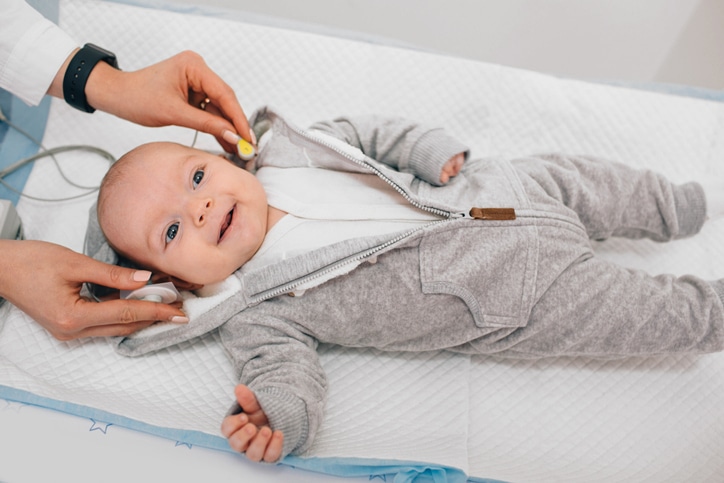Infant hearing loss is very difficult to detect, which is why many cases go undiagnosed until the child reaches talking age. Often, the only way to identify and treat a hearing loss problem when it truly counts is to take your baby to an audiologist for an infant hearing screening.
Why Is Early Detection So Important?

Nearly three of every one thousand babies are born with some form of hearing loss. In most cases, however, hearing issues aren’t discovered in children until they are at least two years old. The first two years of a child’s life are hugely important in physical development as well as in forming emotional, learning and communication skills. Because of this, babies with moderate to severe hearing loss often experience major developmental setbacks.
Despite many years of developing and refining these hearing tests for babies that are just a few months old, studying infant hearing loss still presents many challenges. If you’re a new parent preparing for an infant hearing screening, there are several important factors and facts you need to know before your appointment.
Signs of Hearing Loss in an Infant
Infant hearing loss sometimes develops shortly after birth. Even if your child passes the initial hearing screening, these signs and symptoms may indicate a hearing impairment:
- Failure to startle when exposed to a sudden, loud noise.
- No recognition or response to your voice.
- Doesn’t turn eyes or head in direction of sound (4-8months).
- Doesn’t babble (4-8months).
- Inattentiveness.
Diagnosing Hearing Loss in Infants
Most hospitals screen an infant’s hearing shortly after birth. Up to 10 percent of infants do not pass the initial hearing test, but this is often the result of movement and crying during the exam, or a buildup of fluid or vernix (the waxy, white protective coating that babies are born with) in the ears. Follow-up testing can confirm whether your baby truly has a hearing loss.

What Are the Causes of Infant Hearing Loss?
While most babies are born with normal hearing, there are some who do have a hearing loss at birth, or develop one early in childhood. Risk factors include:
- Premature birth or other complications.
- Family history of hearing loss.
- Frequent or chronic ear infections.
- Infections such as meningitis or cytomegalovirus.
- Exposure to very loud noises.
The earlier you catch your child’s hearing loss, the better. Babies rely on their hearing right from the start in order to develop speech and language skills. Left untreated, a hearing loss can lead to delays in language development and social coping skills. If there is a problem, early detection can prevent many of these issues, and put your child on the proper track for learning.
Call Warrior Hearing Center at (816) 592-3575 for more information or to schedule an appointment.